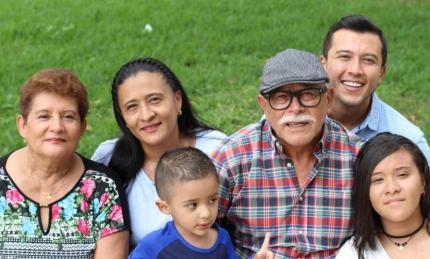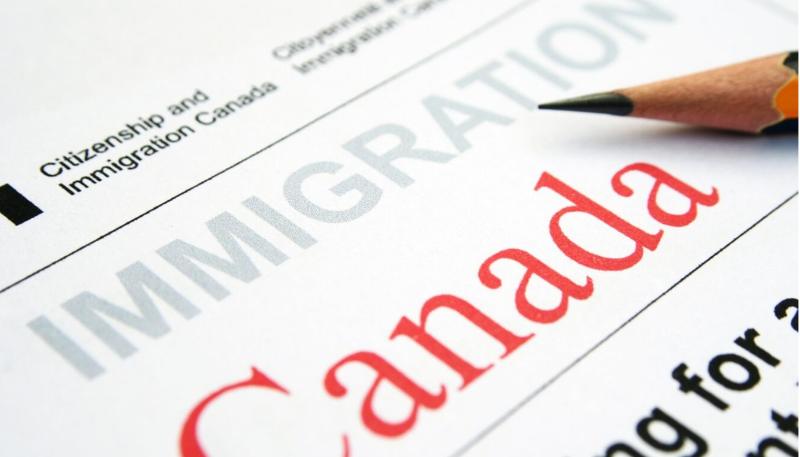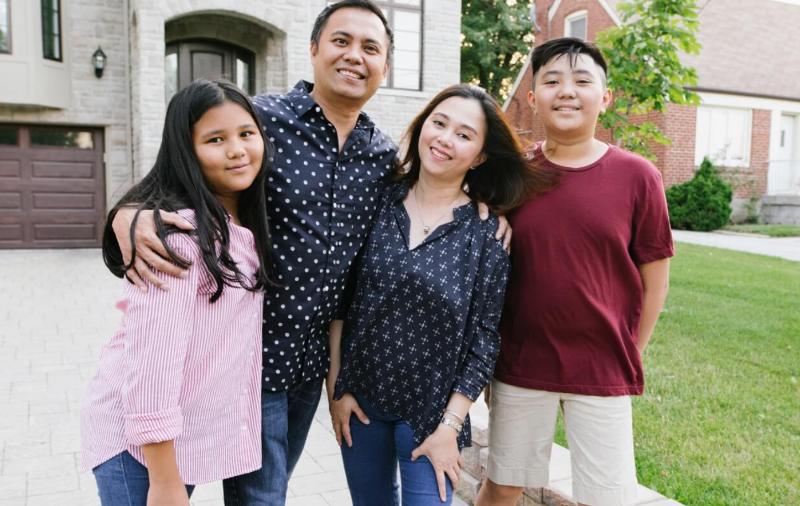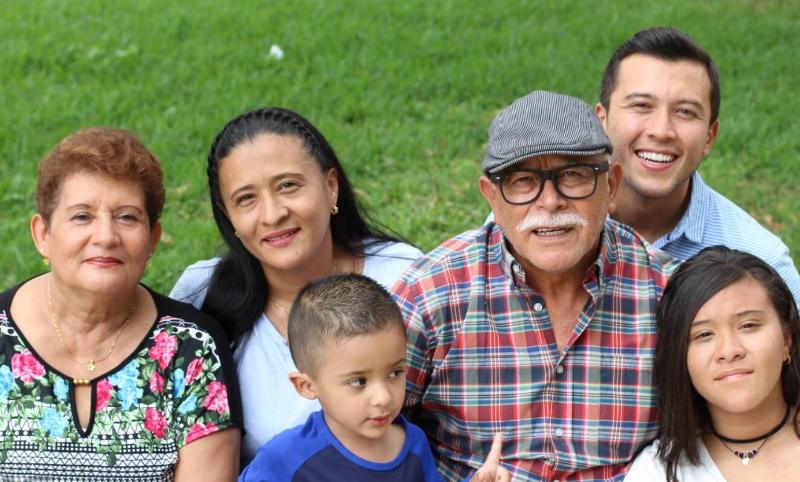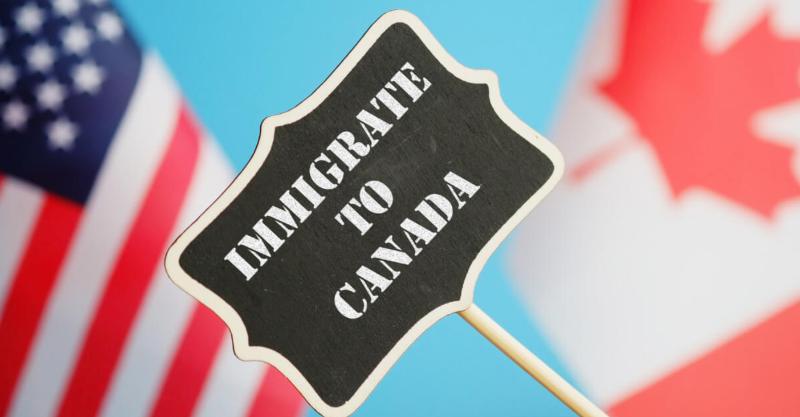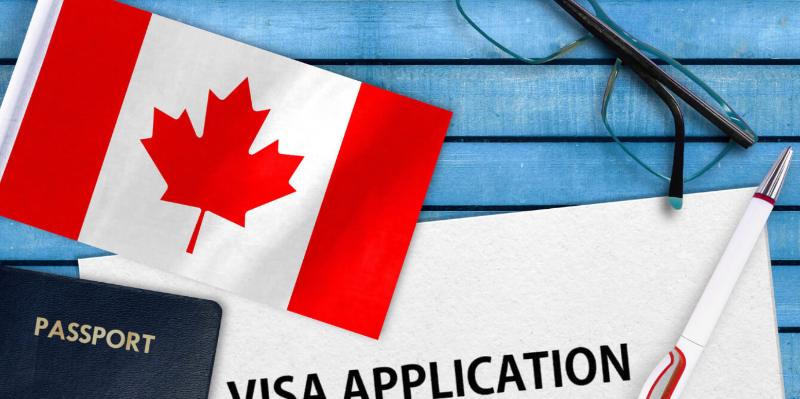Get free consultation
Fill out the form and we will contact you
Immigrating to Canada for the whole family is an ideal option for those who wish to reunite with their loved ones in the land of maple leaves. With a strong economy, top-tier education and healthcare systems, a multicultural society, and stable security, Canada has established itself as one of the most attractive destinations for settling down and building a career. Let’s explore this immigration program in detail in the following article.
The family reunification immigration program allows Canadian citizens or permanent residents to sponsor their relatives to live and work in Canada. However, to participate in this program, the sponsor must demonstrate sufficient financial ability to support their relatives once they settle in Canada.
Currently, Canada’s Immigration Law and the Canadian Government have made it easier for foreigners to have the opportunity to settle here. This program not only aims to reunite families, helping them lead happier lives, but also contributes to addressing the issues of an aging population and the shortage of skilled young workers.
Permanent residents can sponsor their relatives to Canada
Overall, the approval rate for family reunification immigration applications is quite high. The processing time is also faster compared to other immigration categories, usually around one year. Notably, the costs for this immigration option are relatively reasonable, primarily covering document fees and procedural charges as per regulations.
When settling in Canada, you and your family will enjoy several significant benefits, including:
Freedom to live and work: Permanent residents have the right to live, work, do business, travel, and express themselves freely in any province of Canada, as long as they comply with the constitution and federal laws.
Ease of obtaining or being exempt from visas: Canadian permanent residents have the opportunity to travel and move to many countries without needing to apply for a visa beforehand. However, this right depends on the regulations of each country, with some allowing entry and others requiring a nationality check.
Child benefits: Canada’s child welfare program offers financial support for families with children under 18 years old. Specifically:
Children under 6 years: $6,833 CAD annually.
Children aged 6 to 17 years: $5,765 CAD annually.
Senior benefits: Seniors aged 65 and above can receive monthly allowances from the Old Age Security (OAS) program. This amount depends on the length of residence in Canada and may be subject to taxation.
Tuition exemptions and reductions: Children of permanent residents under 18 years old are exempt from tuition fees at public schools. Permanent residents also pay lower tuition fees compared to international students when attending post-secondary programs.
Unemployment and maternity benefits: Permanent residents have access to these benefits similarly to Canadian citizens, providing support while seeking employment or during maternity leave.
Healthcare: Canada has a universal healthcare system offering free or low-cost medical services to permanent residents, ensuring the health of all family members.
Sponsors must meet the following conditions to sponsor their relatives to immigrate to Canada:
Age and residency: The sponsor must be 18 years or older and residing in Canada.
Citizenship or permanent resident status: The sponsor must be a Canadian citizen or permanent resident.
Valid passport: A valid Canadian passport is required, with a validity of 5-10 years, or at least one year remaining before submitting the sponsorship application.
Financial capability: The sponsor must demonstrate sufficient financial resources to support their relatives when they come to live in Canada.
Clean criminal record: The sponsor must not have any criminal convictions or criminal charges.
Legal status: The sponsor must not be incarcerated, declared bankrupt, or under any other legal restrictions.
Sponsored individuals must meet one of the following conditions:
Parents, grandparents: The sponsored individual must be the parent, grandparent, or great-grandparent of the sponsor.
Spouse: The sponsored individual must be 16 years or older and legally married to the sponsor.
Children: Biological or adopted children of the sponsor, under 18 years old, and unmarried.
Partner: The partner must be 16 years or older and have a committed relationship with the sponsor for at least one year.
Orphaned siblings or nieces/nephews: Orphaned siblings or nieces/nephews of the sponsor, under 18 years old, unmarried, and not living with anyone else in a marital relationship.
The most common form of Canadian immigration is through spousal sponsorship. This option allows Canadian citizens or permanent residents to bring their spouse to live and study in Canada.
Sponsoring a Spouse
To immigrate under this category, the following conditions must be met:
Legal marriage: The couple must be legally married and have lived together for at least one year from the time of submitting the application.
Sponsorship limitation: The sponsor is not allowed to sponsor another individual for 5 years after their spouse becomes a permanent resident.
Commitment to settle and obey the law: Both individuals must intend to settle in Canada, be in good health, and comply with Canadian laws.
Relationship probation: If the couple immigrates as spouses without children within 24 months, they will undergo a 2-year probationary period to prove the genuineness of the marriage.
Permanent residents who wish to sponsor their parents or grandparents to Canada must meet the following conditions:
Commitment to financial support: The sponsor must commit to providing financial support to their parents or grandparents for at least 20 years. This agreement must be signed by both the sponsor and the sponsored individual(s).
Minimum income requirement: The sponsor must demonstrate income that meets the minimum standards set by the Canadian government to ensure financial capability to support and care for the sponsored individuals upon their arrival in Canada.
International students who are parents living and working in Canada can sponsor their children for reunification, provided they meet the following requirements:
Family relationship: The sponsored individual must be the biological or legally adopted child of the Canadian citizen or permanent resident.
Age: The child must be under 19 years old at the time of applying for the visa and must be financially dependent on the sponsor.
Marital status: The child must be unmarried or not in any marital relationship.
For children over 19: If the child is over 19 years old at the time of application, they must prove continued financial dependency on the sponsor, usually due to health conditions or exceptional circumstances.
The term "Common-law partner" is often used to refer to a partner in a marriage-like relationship under legal, immigration, and settlement matters. To sponsor a common-law partner to Canada, the following conditions must be met:
Permanent Residents Can Sponsor Other Relatives to Settle in Canada
Continuous cohabitation: Both individuals (including same-sex and opposite-sex relationships) must have lived together continuously for at least 12 months without interruption.
Proving the relationship: Proof must be provided to show the relationship is genuine, such as documents that demonstrate cohabitation (lease agreements, shared bills), joint bank accounts, or letters, photos, and communications showing the bond between the two.
In addition to common sponsorship categories such as sponsoring parents, children, or spouses, there are other special cases where you can sponsor relatives to Canada:
Sponsoring orphaned relatives: The conditions for sponsoring orphaned relatives include:
The sponsored individual must be under 18 years old.
They must be orphaned, having lost both parents.
They must not be married or have a spouse or common-law partner.
They must be a legal sibling, grandchild, or adopted child of the sponsor.
Sponsoring other relatives (including aunts, uncles, cousins, or nieces/nephews): You can sponsor other relatives in cases where there are no other close family members eligible under the above categories and there are no other relatives currently residing in Canada as citizens or permanent residents. This allows those without close family ties to reunite with their relatives in Canada.
When a permanent resident wishes to sponsor family members to settle in Canada, meeting the financial conditions is a crucial factor. Specifically:
Sponsors Must Meet Financial Conditions as Required
Standard income level: The sponsor must meet the minimum income requirement for the past 12 months as set by the Canadian Ministry of Immigration. This minimum income is updated annually and may change.
Exemption from minimum income requirement: The sponsor is not required to meet the minimum income if they are sponsoring a spouse or dependent children under 22 years of age with no dependent children. However, if these individuals are receiving social assistance (except for health reasons), the sponsor will not be eligible to sponsor their family.
Income calculation: The minimum income is calculated based on the total number of individuals in the household, including those who have already been sponsored but have not completed their sponsorship period, and the person being sponsored in the current application. Detailed instructions on how to calculate the minimum income and related charts will be included in the family sponsorship application guide.
Types of income considered: The financial evaluation form accompanying the family sponsorship application will list the types of income that are considered, including wages, business income, rental income, pensions, and other special allowances.
The duration of the family sponsorship process varies depending on the type of relative being sponsored:
Spouse, partner, or children over 22 years old: The sponsorship duration is 3 years from the date of entry into Canada.
Dependent children under 22 years old: The sponsorship duration is at least 10 years from the date of entry, or until the child turns 25, whichever comes first.
Other relatives: The sponsorship duration is 10 years from the date of entry into Canada.
The Duration of Sponsorship Varies Depending on the Sponsored Individual
Additionally, if the sponsor or co-sponsor fails to fulfill their financial obligations to the sponsored relatives, causing the relatives to rely on social assistance during the sponsorship period, the Ministry of Immigration, Canada will not allow them to sponsor any other relatives until the full amount of social assistance received by the sponsored relative has been reimbursed.
When applying for family sponsorship to immigrate to Canada, both the sponsor and the sponsored individual must prepare the necessary documents and follow the process as outlined below:
For the Sponsor:
Civil Status
Sponsorship Application Form: A clear explanation of the reasons for sponsorship.
Sponsorship Letter: An official letter confirming the sponsorship.
List of Sponsored Individuals: A list of family members being sponsored.
Financial Documents: Proof of financial capacity to support the sponsored individuals.
Citizenship Card: Copy or certification of citizenship status.
Passport Copy: A copy of the current passport.
Residence Card Copy (for permanent residents): A copy of the current residence card, if applicable.
For the Sponsored Individual:
Passport Photo: 4.5 x 4.5 cm size.
Passport: Valid passport.
Visa Application Form: Completed according to the Canadian Embassy’s instructions.
Financial Documents (if needed): Proof of financial capacity of the sponsored individual, if necessary.
Proof of Relationship: Documents proving the relationship between the sponsor and the sponsored individual.
Fill Out the Immigration Application: The sponsor in Canada completes the immigration application and provides necessary declarations as required by Canadian law.
Send and Sign the Application Form: The sponsor in Canada sends the completed application form to the applicant. The applicant signs the form and returns it to the sponsor.
Sign Before an Authorized Official: Upon receiving the form, the sponsor in Canada signs it in front of an authorized official, such as a notary public, commissioner of oaths, or a peace commissionern.
Return the Signed Form: The sponsor in Canada sends a signed copy of the completed form back to the applicant.
Submit Visa Application: The applicant submits their application as directed to IRCC (Immigration, Refugees, and Citizenship Canada) for visa processing.
Enter Canada: Upon entering Canada, the sponsored individual must carry a copy of their application file, including documents like the visa application, family declaration form, and IRCC approval letter.
Immigrating to Canada through family reunification offers a wonderful opportunity for family members to study and grow in a diverse cultural and linguistic environment. To help you and your family complete the Canadian immigration process quickly and effectively, contact Second Citizenship today. We are here to support you at every step of the process to achieve your immigration goals.
Fill out the form and we will contact you
